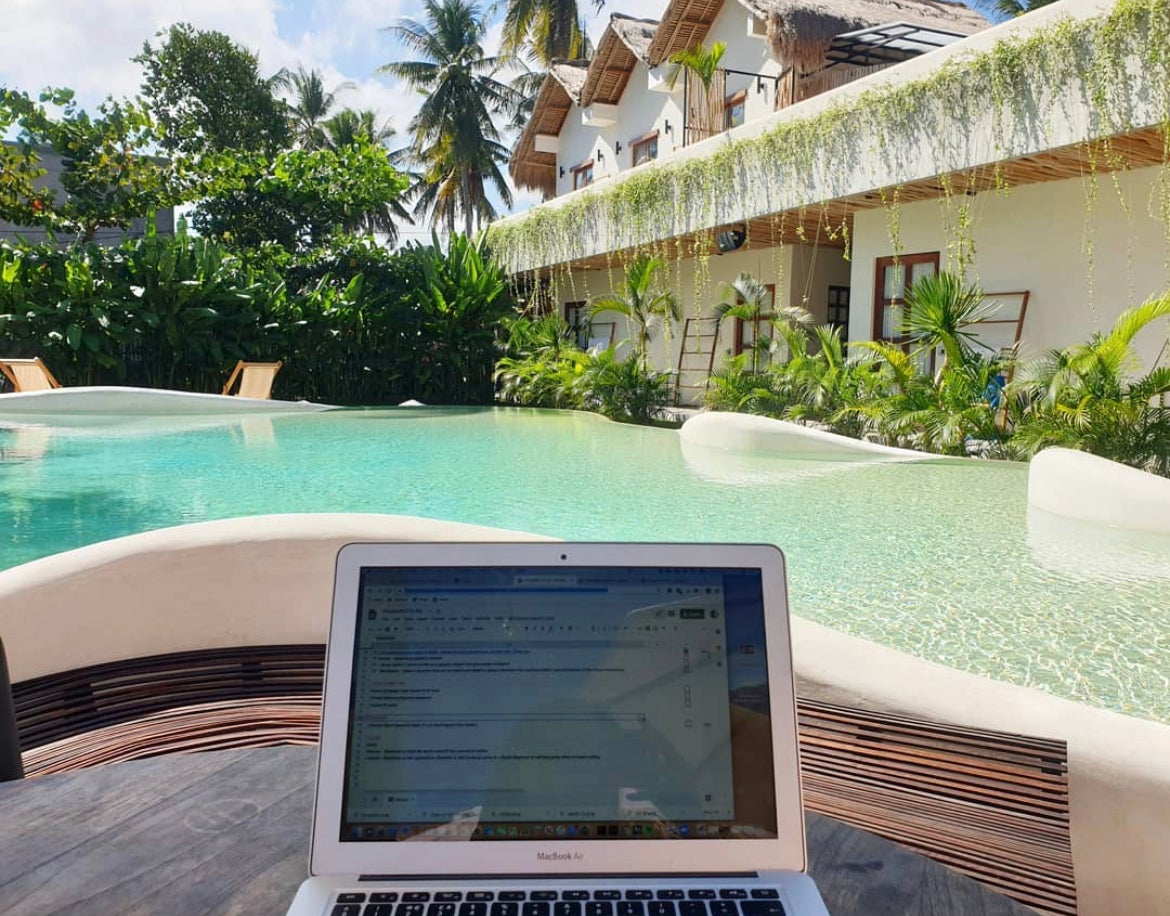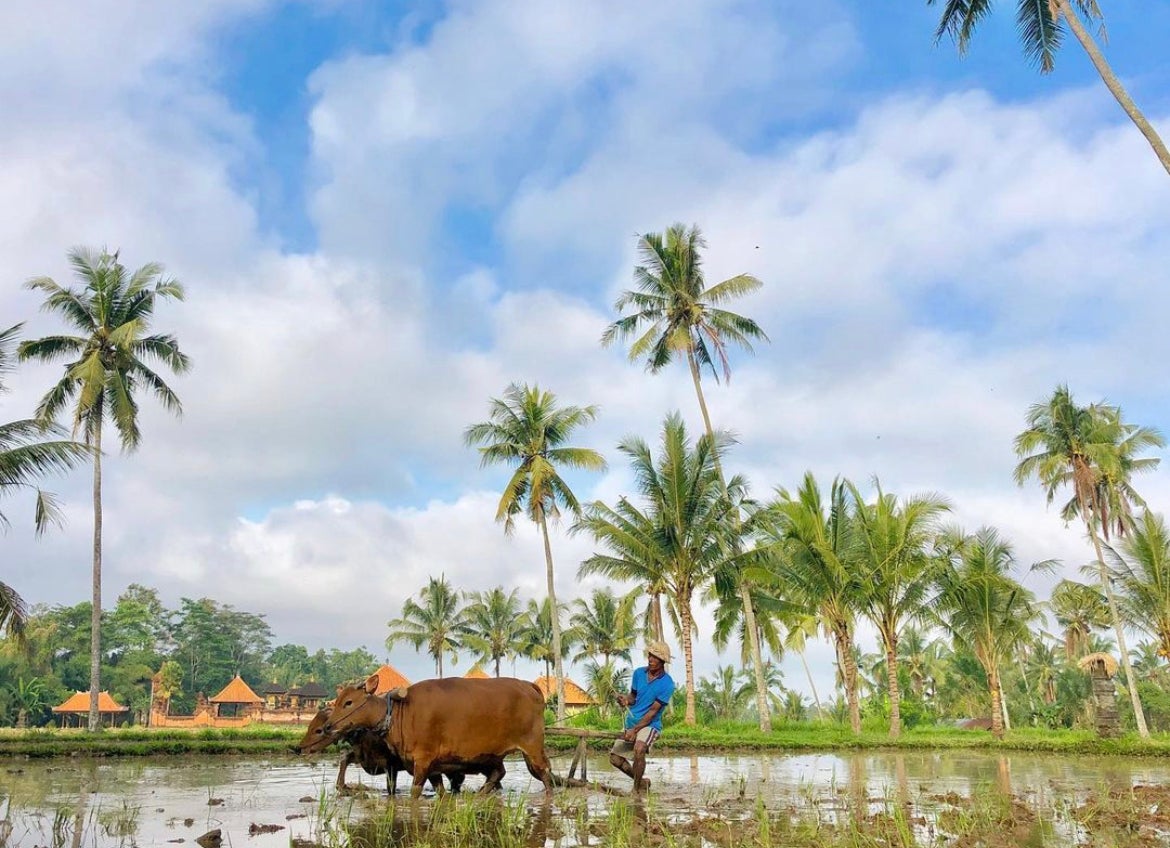Is the party over for Bali’s digital nomads?
Following two high-profile deportations and a new visa to contend with, Bali’s remote worker tribe have a lot to contend with. Former digital nomad Stephanie Conway explains


Your support helps us to tell the story
From reproductive rights to climate change to Big Tech, The Independent is on the ground when the story is developing. Whether it's investigating the financials of Elon Musk's pro-Trump PAC or producing our latest documentary, 'The A Word', which shines a light on the American women fighting for reproductive rights, we know how important it is to parse out the facts from the messaging.
At such a critical moment in US history, we need reporters on the ground. Your donation allows us to keep sending journalists to speak to both sides of the story.
The Independent is trusted by Americans across the entire political spectrum. And unlike many other quality news outlets, we choose not to lock Americans out of our reporting and analysis with paywalls. We believe quality journalism should be available to everyone, paid for by those who can afford it.
Your support makes all the difference.Stand still at any given moment in Bali and you’ll hear a constant flow of scooter engines, clucks and crows of free-roaming chickens, sizzling street carts cooking local treats like gorengan and terang bulan, myriad languages from excited tourists navigating their way to the nearest beach alongside local communities going about their daily rituals. It’s this heady mix that typically draws over 16 million tourists to the island’s shores each year.
Before the pandemic, the Indonesian island had a reputation for welcoming thousands of remote workers to hotspots like Canggu, Ubud, and Uluwatu to decorate their co-working spaces and niche cafes with laptops and wireless headphones. According to remote working tool Nomad List, at least 5,000 digital nomads were working from Canggu, Bali’s zeitgeisty neighbourhood, before Covid hit.
That was also before the current travel ban and recent deportation of two travel influencers, which could mark the end of an era for digital nomads in Bali.
Experts have estimated that there are millions of people who now consider themselves “digital nomads”: according to consulting firm Emergent Research, 10.9 million Americans were working remotely in 2020. While “digital nomad” once meant somebody who merely worked remotely, the term has evolved to a glamourised, transient lifestyle where the freedom to travel is prioritised above all else.
I should know – I moved to Bali in August 2017 to do a yoga teacher training course, landing in Ubud, the jungly town in the centre of the island. I stayed in a villa owned by a friendly local man named Dekking (meaning “second born”, as Balinese children are often named according to the order of their birth). He taught me basic Indonesian phrases that helped develop my relationships with the locals that I interacted with – it’s amazing how a quickly an apa kabar? (how are you?) can make people smile. I got to know plenty of friendly locals who taught me about their religion, food, traditions and ways of life. I was welcomed with open arms by people who didn’t want anything from me except to exchange cultural experiences and kindness.

It’s this local hospitality that gives Bali its reputation as a welcoming island to tourists, expats and digital nomads alike, but there are times when that welcome has been mistaken for ultimate freedom.
In December, Russian influencer Sergei Kosenko filmed himself driving a motorcycle off a jetty into the sea for his five million Instagram followers. He was later deported for hosting an illegal mass gathering of people. Or there’s Kristen Gray. Last month, the American influencer and digital nomad was kicked out of Bali for tweeting that the island was ‘queer-friendly’ and encouraging others to move there during the pandemic. Jamaruli Manihuruk of Indonesia’s Ministry of Law and Human Rights said that her tweets had “disseminated information disturbing to the public”, which was the basis for her deportation. Both these cases have raised complex questions around the status of these remote workers in Bali.

“Bali is an incredible place and we are so lucky to be able to call it home even if for a short while,” says Luke Temple, a digital nomad who runs marketing firm Victus Digital. “Some people clearly don't get this and it can certainly rightly backfire. These isolated incidents can put the whole scenario in a bad light and might ruin it for others.”
Before the outbreak, Balinese authorities unofficially turned a blind eye to digital nomads staying tax-free for longer periods. While many countries including Barbados and Thailand have introduced longer-term digital nomad visas to entice visitors back, Indonesia’s current visa policy provide remote workers with a tax-haven loophole.

Typically, digital nomads arrive on tourist visas, and “extend” their stay by going on short visa-runs to neighbouring countries like Malaysia and Singapore. But while this loophole may be financially beneficial for digital nomads, it leaves room for scrutiny from taxpaying members of the community. “If anyone is serious about staying in Bali, they need to get a business visa and invest in the local community,” says Michael Craig, who owns Dojo Coworking in Bali.
This could soon change. Indonesia’s tourism and creative economy minister Sandiaga Uno and Law and human rights minister Yasonna Laoly this month announced that they are eyeing a long-term visa for international visitors and digital nomads for up to five years, which would require a deposit of 2 billion Indonesian rupiah (approximately £103,000) per individual or 2.5 billion per family. The government hopes that the new visa will entice tourists to stay longer, but also have the side effect of increasing the “quality” of tourists.

After all, Bali has long been heavily dependent on tourism. As international travel started to dry up as the pandemic took hold last year, the Bali economy shrunk 1.14 per cent in the first three months of 2020, according to figures from Indonesia’s central bank – making it one of the worst affected provinces in the country.
These digital nomads need not worry too much. Other destinations have quickly sprung into action to attract the surge of remote workers who have fled elsewhere due to the pandemic. Costa Rica’s tourism minister Gustavo Segura has announced plans to encourage remote workers to stay for a longer period of time; the Portuguese island of Madeira is developing a “digital nomad village”, complete with co-working spaces, rental accommodation and remote work events; and several Caribbean islands including Barbados and Antigua have unveiled similar schemes. A warm welcome to these remote workers could be key to boosting international economies when lockdown eases.
As for Bali, hard lessons have been learnt about the recent deportations, and it’s hoped that this new visa will ensure a level of respect towards the communities welcoming visitors to their island.


Join our commenting forum
Join thought-provoking conversations, follow other Independent readers and see their replies
Comments